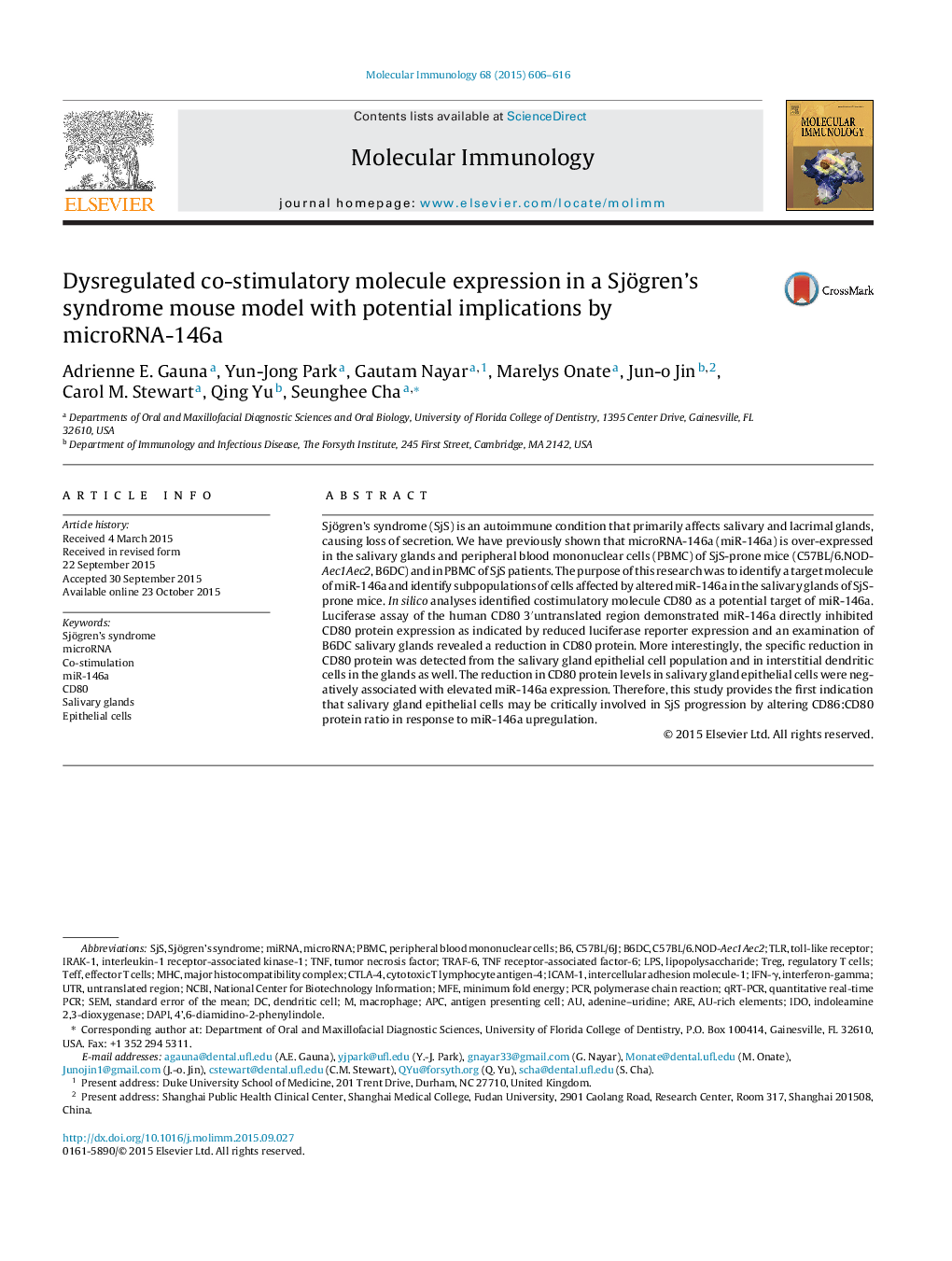| Article ID | Journal | Published Year | Pages | File Type |
|---|---|---|---|---|
| 2830677 | Molecular Immunology | 2015 | 11 Pages |
•microRNA-146a directly inhibits CD80 protein expression.•Salivary epithelial cells and interstitial dendritic cells in the salivary glands showed altered co-stimulatory molecule expression.•The reduction in CD80 expression in salivary gland epithelial cells was negatively associated with elevated miR-146a expression.
Sjögren’s syndrome (SjS) is an autoimmune condition that primarily affects salivary and lacrimal glands, causing loss of secretion. We have previously shown that microRNA-146a (miR-146a) is over-expressed in the salivary glands and peripheral blood mononuclear cells (PBMC) of SjS-prone mice (C57BL/6.NOD-Aec1Aec2, B6DC) and in PBMC of SjS patients. The purpose of this research was to identify a target molecule of miR-146a and identify subpopulations of cells affected by altered miR-146a in the salivary glands of SjS-prone mice. In silico analyses identified costimulatory molecule CD80 as a potential target of miR-146a. Luciferase assay of the human CD80 3′untranslated region demonstrated miR-146a directly inhibited CD80 protein expression as indicated by reduced luciferase reporter expression and an examination of B6DC salivary glands revealed a reduction in CD80 protein. More interestingly, the specific reduction in CD80 protein was detected from the salivary gland epithelial cell population and in interstitial dendritic cells in the glands as well. The reduction in CD80 protein levels in salivary gland epithelial cells were negatively associated with elevated miR-146a expression. Therefore, this study provides the first indication that salivary gland epithelial cells may be critically involved in SjS progression by altering CD86:CD80 protein ratio in response to miR-146a upregulation.
